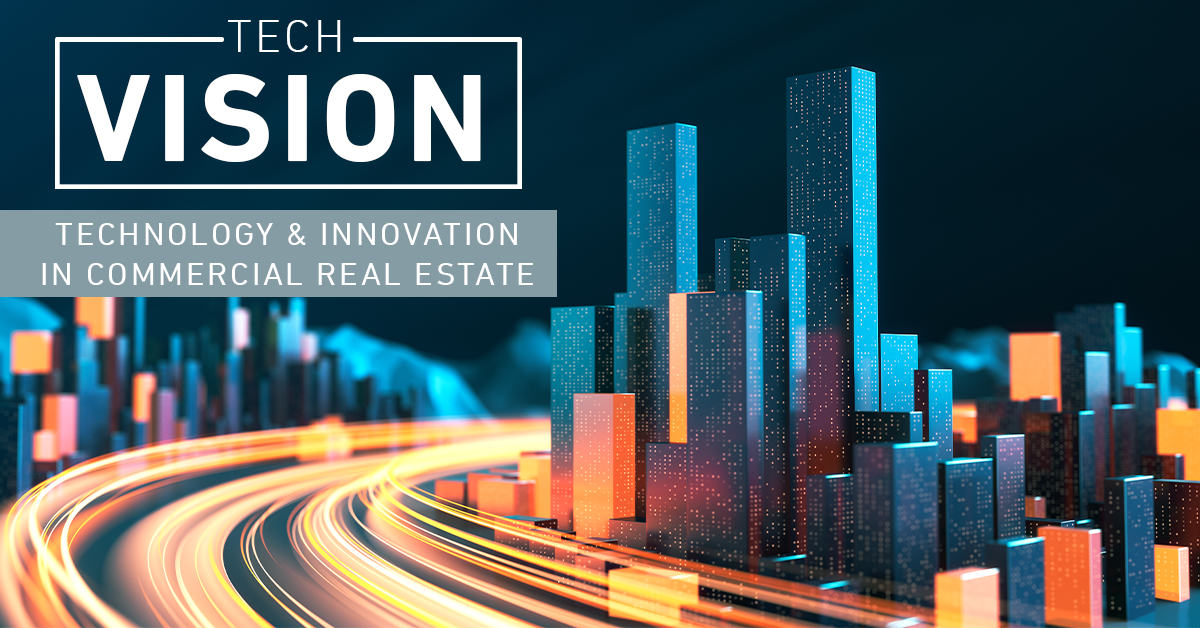The top 3 biggest trends impacting the industrial industry
In partnership with NAR REACH, the SIOR Tech Vision Series will unlock the driving forces and emerging trends impacting our industry. We will look into emerging technology trends and shifting industry dynamics to help our industry navigate the future of commercial real estate.
Technology is a phenomenon that has profound implications on the commercial real estate industry. Today's commercial real estate leaders need to prepare themselves for a new normal that will impact their business, their clients, and their organization.
Industrial technology may not be sexy, but technology investors love it. Since 2010, venture capital investments in industrial technology has exploded. The industry has begun to see industrial organizations—including industrial real estate organizations—take action, adopt new technologies, and realize the financial and operational benefits.
According to data by the Center for Real Estate Technology & Innovation, since 2010, approximately $7.3 billion has been invested in industrial technology, including engineering, construction, mobility, energy, sustainability, and materials. The dollar volume deployed has grown approximately 30% per annum, up from $750 million in 2010.
The speed at which the industrial technology industry is evolving only amplifies the need for new creative solutions in a global economy. There is no better time to leverage innovative technology to transform your business.
Below are three (3) leading technologies that are innovating the industrial industry based on market trends and venture activity.
Emerging Sectors in Industrial Technology
1. Artificial Intelligence and the Future of Industrial
Artificial intelligence has become invaluable when it comes to transforming the industrial industry and the built world. According to a 2018 Gartner report, it’s expected that AI will become a critical feature of 30% of smart city applications.
The impact of AI has been profound. Today, AI-based industrial companies are being deployed to construct cities of the future, including infrastructure projects using AI-based geospatial and computer vision technology. These cutting-edge technologies are allowing developers and municipalities to optimally manage maintenance and construction costs more accurately.
Since 2010, VCs and technology investors have invested over $733 million across 55 deals in artificial intelligence-based industrial companies, with over $275 million invested in 2020.
Beyond Limits, for example, received $133 million in funding in late September 2020. Using AI, this company helps optimize operations for sectors like manufacturing and industrial IOT, offering services such as the improvement of inefficiencies, sensor monitoring for detection and prediction of operational conditions, cognitive solution formulations for more efficient processes, improved data, etc. In October of 2020, AI company Augury, which helps to improve productivity for machine health diagnostics among other services, received $55 million in venture funding. Several other companies receiving recent funding include: VERSATILE, OnePredict, Iris Automation, and Orca AI.
2. Alternative Sources of Energy and the Future of Industrial
Alternative energy and sustainability have become the fastest growing trend in the industry. Since 2010, $641 million in venture capital funding has been invested in energy-based industrial companies, technology that reduces the negative environmental impact through energy efficiency innovation.
The two leading factors fueling the push towards energy sustainability and net-zero emission have been led by cost compression and customer demand. Energy-tech implementation is rapidly becoming recognized as the secret ingredient helping energy providers, owners, developers, and municipalities reduce their lowest carbon footprint.
One such company, Svante, recently received $100 million in venture funding this past March. Svante captures CO2 directly from industrial sources using an innovative carbon capture technology. Even more recently, in June Heliogen received $83 million in funding to help advance its mission to provide Ai-enabled concentrated solar energy. Several other companies receiving recent funding include: Carbon Clean, Triax, C-Zero, and Quaise.
3. Technology Enabled Manufacturing and the Future of Industrial
Technology-enabled manufacturing has been the fastest growing sector in the industrial industry. The diverse sector has received the most amount of capital from technology investors, fueling the next generation of the industrial technology revolution.
Since 2010, $2.4 billion has been invested in the tech-enabled manufacturing sector. Companies in this wide and diverse industry range from adhesive manufacturing for solar panels to sustainability and modular construction.
The commercial real estate industry has also benefited from the rapid rise of tech-enabled manufacturing. Since 2010, technology investors have invested $196 million in the real estate manufacturing sector. Most recently, OCSiAl received 41.1 million in funding for its scalable technology of graphene nanotubes to help produce innovative materials that reduce cost and help halt the degradation of the biosphere. Other recent companies to receive venture funding include: Meridian Adhesives, Future High-tech, and YASA. These companies are betting that by investing in forward-thinking technology companies, your business, the industry, and the world can have a brighter future.






